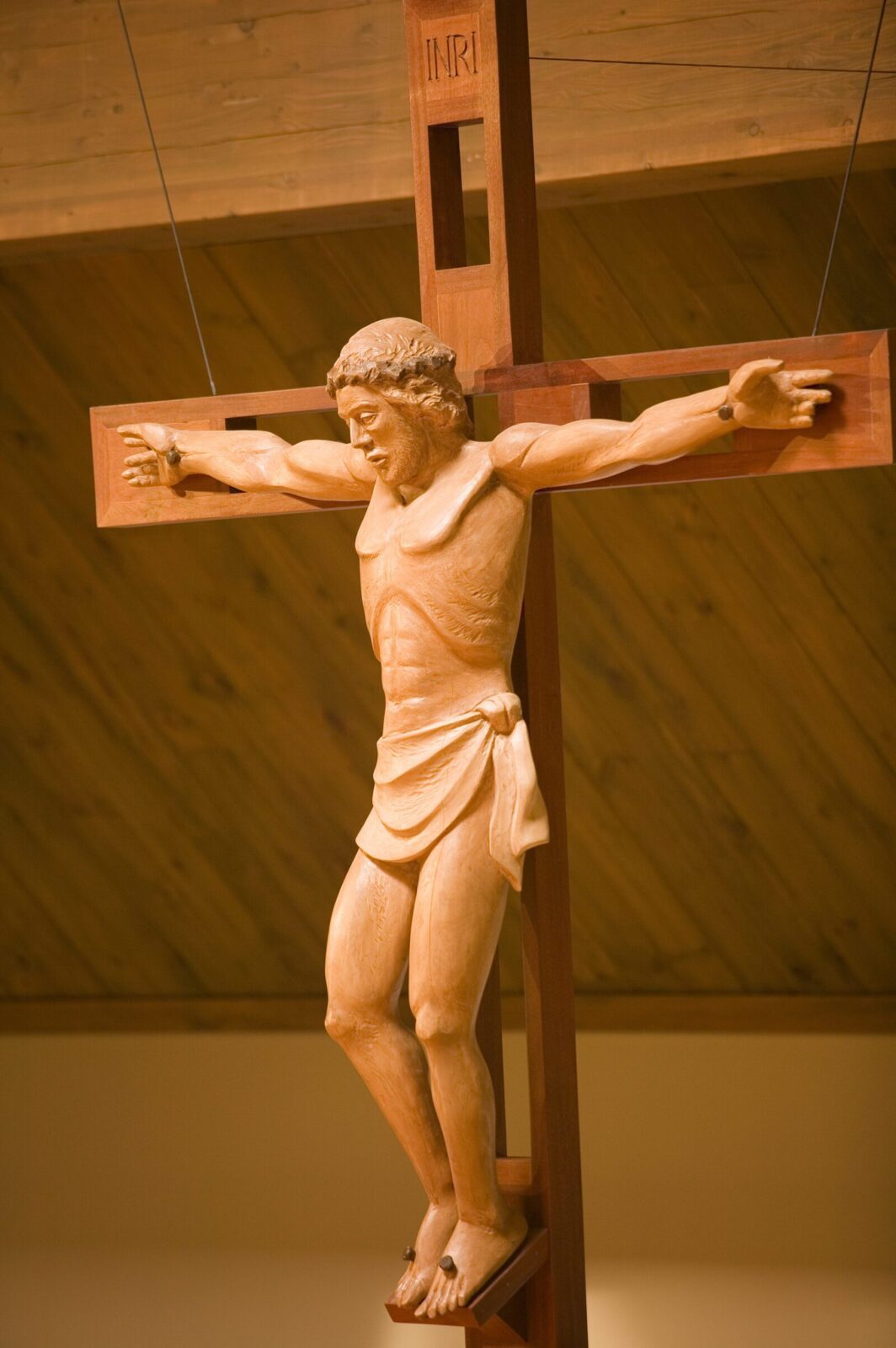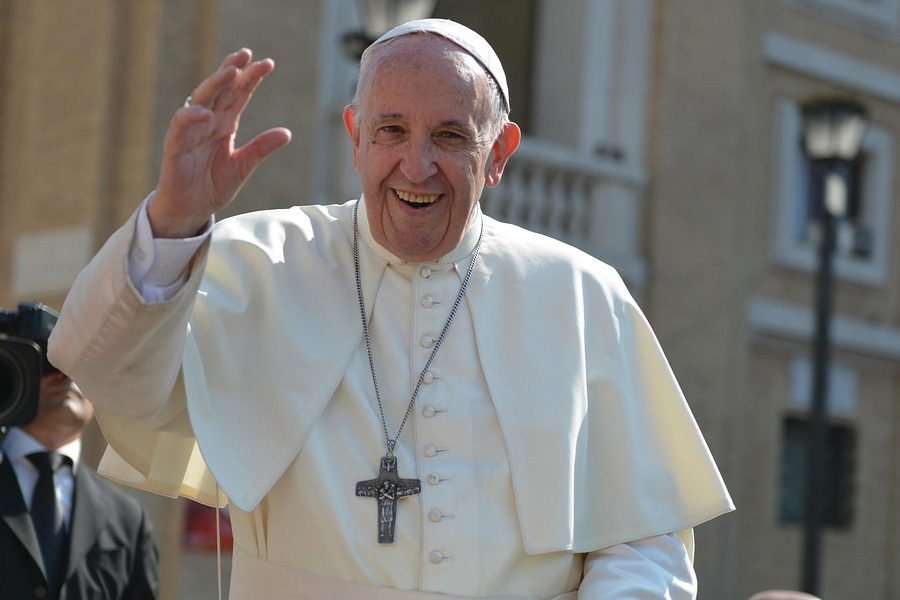Read the homily given by Provincial Superior Rev. Thomas J. O’Hara, C.S.C., at Holy Thursday Mass on Thursday, April 17, 2014, at the Basilica of the Sacred Heart on the campus of the University of Notre Dame.
 My sisters and brothers in Christ: Tonight we celebrate one of the most sacred nights of the year, the night when we commemorate the Last Supper of Jesus. This night begins three days of intense remembrance of the central mystery of our faith: the suffering, death and resurrection of Jesus Our Lord.
My sisters and brothers in Christ: Tonight we celebrate one of the most sacred nights of the year, the night when we commemorate the Last Supper of Jesus. This night begins three days of intense remembrance of the central mystery of our faith: the suffering, death and resurrection of Jesus Our Lord.
When I was a very young priest, I first worked in an inner-city parish in Brooklyn, N.Y. Sadly, at that time, the area where the parish was located was a rather violent place and it was with great trepidation that people would venture out alone at night in order to walk to Church. But the parish had a van and on Holy Thursday evening, that van made numerous trips throughout the area to bring people to church. It was clear people wanted, indeed needed, to be there despite fears of any danger they faced. Every year, people would fill that Church to celebrate Holy Thursday. I was inspired by their deep desire to be at Holy Thursday services despite any obstacle. Well, here we are in this beautiful and full basilica to celebrate the same sacred night. Perhaps we had no fear of violence in walking here, but no doubt we all made conscious decisions to be here, regardless of whatever may have caused us hesitation, the business of our lives, our status of health or our state of mind. We, too, have said to ourselves we ought to be here we need to be here. Why?
There are many reasons why we feel compelled to be here, but let me offer two. The first is to remind ourselves how deeply we are loved by God. We live in a world where too often love is compromised easily, where we are loved with conditions or we are loved in so far as we agree or comply or are loved for a time that is defined by others. Yet tonight we are with a God who we are told in the Gospel that was just read “loves us to the end,” not for a while, not under certain conditions, but loves us to the end. And in the first reading of tonight from the Book of Exodus, we see a demonstration of that Love that God held for his chosen people when he promised to save their first born by passing over their homes if they put on their doors the blood of a sacrificed lamb. The blood of the Lamb was a sign of God’s love to the chosen people. But tonight we celebrate the sacrifice of a New Lamb of God, A Lamb of God who takes away the sins of the world, Jesus. God made man, tonight reminds us that He gives His life for our sins. And this love is not just a one-time event, as John reminds us; it is a love to the end. To show us He is still with us, even after His death, Jesus this night instituted the Holy Eucharist saying, “This is my Body given up for you. This is my blood which will be poured out for you for the forgiveness of sins. Do this in remembrance of me.” There is great mystery in this whole event and yet we know we are blessed for right before Communion, the words are said, “How blessed are we to be called to the supper of the Lamb.” No matter what else is going on in our lives, no matter our personal obstacles or struggles, tonight we are here to be reminded once again so powerfully that we have a God willing to die for us for we share in and venerate the Holy Eucharist. We are compelled to be here.
Secondly, we have the heartfelt ritual of the washing of the feet. This precious act reminds us of the humility of our Lord. On the verge of His impending crucifixion, Jesus washes the feet of His disciples, even when Peter resists. Here is God washing the feet of sinful humans. But He adds a caveat to the ritual. If He, our Master and Teacher, washes the feet of others so too must we wash the feet of the other. Jesus is explicit, “I have given you a model to follow, so that as I have done for you, you should also do.” Those who follow Christ, who call themselves Christians, need to understand this model. It is a model of caring for one another; it is a model of helping one another to be cleansed of all that keeps us from God; and it is a model of simplicity and a model of humility. In a world that all too easily seeks power and dominance and allows for self-absorption, tonight we are reminded of the model of Jesus in reaching beyond ourselves in loving and caring for one another as we have been loved and cared by Him. What better model of this do we have than in our Holy Father Francis? Francis has set a tone for the Church and for us as individuals to reach out to care for one another and, in a special way, for those who most need God’s love and care: the poor, the forgotten, the oppressed, the rejected. Time and again in this past year, you have seen our Holy Father literally reach out to those who most need to feel God’s love. Indeed, on Holy Thursday last year, he washed feet of young men and women, Christian and Muslim, in a juvenile detention center and this year, washed the feet of the aged and disabled in a rehabilitation center in Rome. Francis stands as one who has listened to the words of Jesus in humbly caring for others. His words and actions inspire us, for sure but they should also challenge us to similarly follow the model Jesus asked us to follow.
Thus, my sisters and brothers, whether in an inner-city parish in Brooklyn or in this beautiful basilica on the campus of a great Catholic university, we are blessed to be at Holy Thursday services. Tonight we celebrate that great mystery of a God who loves us so much that His Son dies for us, as the Lamb of God who takes away your sins and my sins. And as we are so incredibly loved, we are clearly reminded of the need to share that love humbly with those who also need to be loved. As Jesus humbled himself to wash the feet of His disciples, so too we are called upon to humbly reach out to those who need God’s love. May God bless us all in this basilica this evening, for indeed, it is good for us to be here at the Supper of the lamb.
 Rev. Thomas J. O’Hara, C.S.C., is provincial superior of the United States Province of Priests and Brothers.
Rev. Thomas J. O’Hara, C.S.C., is provincial superior of the United States Province of Priests and Brothers.



